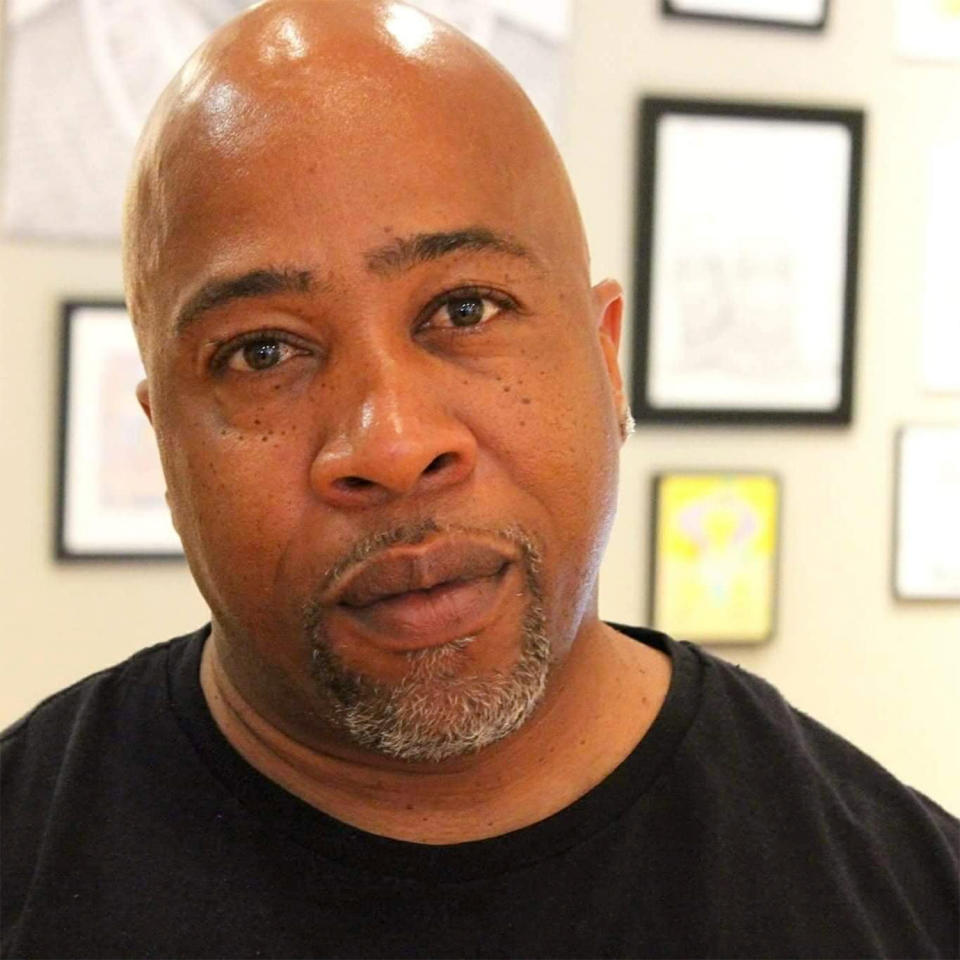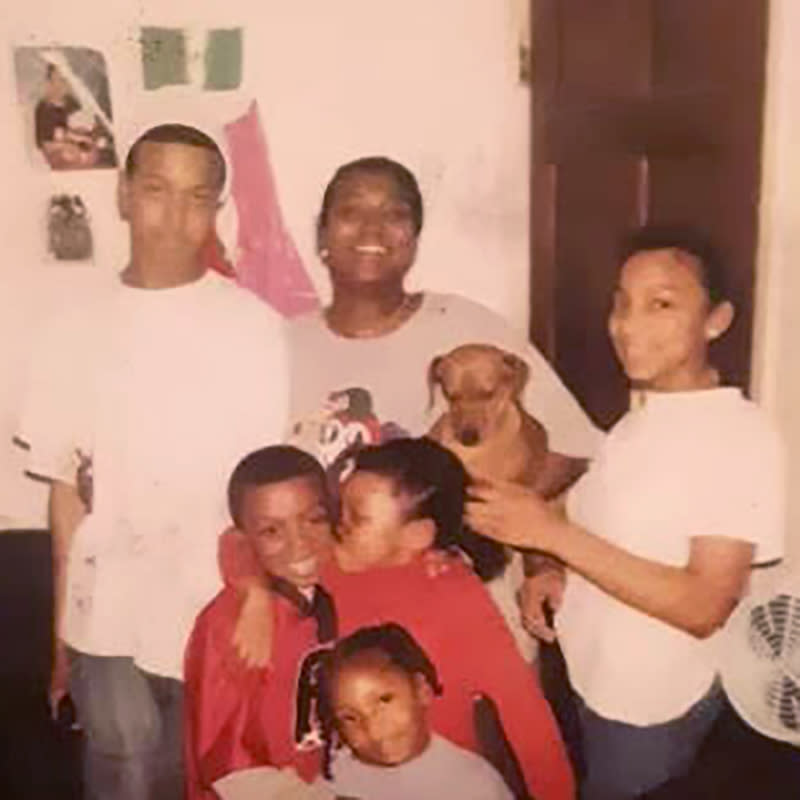Supreme Court could pave way for new trials from Jim Crow-era juries
For years, Rhonda Jordan's family has tried in vain to appeal her conviction and 20-year prison sentence for fatally stabbing a man in 2009 at her Baton Rouge, Louisiana, home.
They allege prosecutorial misconduct, ineffective counsel and an excessive sentence for what Jordan maintains was an act of self-defense.
A nonunanimous jury had found Jordan, a Black woman and mother of five, guilty of manslaughter. In any other state, except for Oregon, her trial would have ended in a hung jury.

But at the time, Louisiana allowed criminal defendants in noncapital cases to be convicted by a jury that was split on the verdict, a vestige of post-Reconstruction Jim Crow-era juries designed to deny Black citizens equal representation in the court and justice systems.
"This is a human rights issue," said Jordan's daughter, Miranda "Mandy" Jordan, 28.
The Supreme Court is again weighing the issue of equity in jury verdicts, with potentially hundreds, if not thousands, of past cases like Jordan's hanging in the balance.
On Wednesday, the high court heard arguments related to a previous case it ruled on earlier this year forbidding nonunanimous juries and whether its decision should be applied retroactively to defendants who had exhausted their appeals. In April, the justices in a 6-3 ruling found that the Constitution guarantees those accused of serious crimes a unanimous jury verdict, siding with a Louisiana man, Evangelisto Ramos, convicted in the 2014 killing of a woman in New Orleans. The jury in his case was split 10-2.
A decision in the Supreme Court's latest hearing isn't expected for months.
Criminal justice reform groups and other advocates say the revisiting of the issue comes at a pivotal moment for the nation, after months of racial justice protests brought a deeper understanding about the systemic racism that has disenfranchised people of color, particularly Black Americans.
Of more than 1,500 inmates convicted by a nonunanimous jury in Louisiana, 80 percent are Black and most are serving life sentences without the possibility of parole, according to a report last month by The Promise of Justice Initiative, a nonprofit justice advocacy group in New Orleans.
While Black people make up 33 percent of the state's population, they represent 67 percent of prison inmates, studies show.
"On a fundamental level, it would be atrocious if we continue to acknowledge that Jim Crow laws exist and yet we don't seek to relieve the unfair burden that it has on people today," said Jamila Johnson, a managing attorney for the Jim Crow Juries Project at The Promise of Justice Initiative.
A 'watershed' ruling?
The legacy of split juries in Louisiana dates to 1898, when state lawmakers affirmed during a constitutional convention to allow nine out of 12 jurors to agree on a verdict for noncapital felonies. According to one official at the convention, their mission was "to establish the supremacy of the white race in this state to the extent to which it could be legally and constitutionally done."
In 1974, the state ratified its Constitution again to require at least 10 out of 12 jurors to agree on a verdict. But in 2018, under a campaign heavily supported by civil rights and civil liberties groups, Louisiana voters overwhelmingly passed a constitutional amendment to require unanimous jury decisions in all felony trials or otherwise consider jurors to be deadlocked. The change, however, did not apply retroactively.
Oregon's permitted use of nonunanimous juries was born out of a 1934 ballot measure during a wave of xenophobia and anti-Semitism.
The referendum followed a sensational trial in which a jury split on a murder charge against a Jewish hotel owner accused of killing a Protestant man, leading the jurors to convict the defendant on a lesser offense of manslaughter and prompting public outcry. Oregon law still required a unanimous jury in first-degree murder cases.
On the federal level, jury verdicts in criminal trials must be unanimous.
Such longstanding discrepancies highlight the social and political inequities for Black people in the criminal justice system, said Angela Allen-Bell, a law professor at Southern University in Baton Rouge and a reform advocate who writes about Louisiana's nonunanimous verdict law.
Especially troubling, she said, are how some split-jury cases intersect with Black people being convicted by all-white or majority-white juries, involve wrongful convictions or result in the denial of voting rights and other constitutional guarantees.
"We have to be serious about the business of getting it right and that people are given a trial by a jury of their peers," Allen-Bell said. "It's good public policy to make sure that we did everything right."
In the Supreme Court's decision in April, Justice Neil Gorsuch wrote a majority opinion that made clear "race was a motivating factor" when Louisiana and Oregon adopted nonunanimous juries. At Wednesday's hearing, Justice Brett Kavanaugh acknowledged the laws have "racist origins."
While advocates are hopeful the justices will determine that their decision to ban split juries should be applied retroactively, it requires the Supreme Court to consider whether doing so would warrant "watershed" status, a high bar related to ensuring there is "fundamental fairness and accuracy" for criminal proceedings.
Under a retroactive ruling, prosecutors would have to decide whether to pursue new trials or offer plea deals with credit for time served in lieu of trials, Allen-Bell said.
The Supreme Court on Wednesday examined the 2006 case of Thedrick Edwards, a Black man convicted of multiple counts of armed robbery, rape and kidnapping, which resulted in a life sentence. Jurors were split either 10-2 or 11-1 on each count, with the lone Black juror voting to acquit.
Louisiana Solicitor General Liz Murrill, representing the state, told the high court a retroactive ruling would unsettle thousands of cases and that "requiring new trials in long-final criminal cases would be impossible in some, and particularly unfair to the victims of these crimes."
A 'sense of fairness'
Curtis Davis, who was convicted of second-degree murder in 1992 and incarcerated for nearly 26 years at Louisiana State Penitentiary, also known as Angola, said he understands the trauma afflicted on victims and their families, especially at emotionally charged trials.
But old cases must be reopened to ensure justice is being adequately served for all parties, he said.
"It's about a sense of fairness," Davis added. "We're supposed to all be awarded constitutional protections."
A 10-2 jury verdict found Davis guilty for his involvement in a fatal shooting in Shreveport. While he long maintained his innocence, he was released from prison in 2016 after accepting a plea deal that reduced his charge to manslaughter. He's now executive director of the Re-Entry Mediation Institute of Louisiana, which helps formerly incarcerated people.

Innocence Project New Orleans, which works to free people who are wrongfully convicted, says at least 14 exonerated prisoners in Louisiana were initially convicted by split juries, and of those, 11 were Black.
"These people were doomed to die in prison for a verdict that in any other state would have been a hung jury," Davis said. "If the gold standard for American constitutional law is a trial by your peers with a unanimous verdict, then Louisianans have been getting a substandard American experience."
Miranda Jordan believes her mother, who remains in prison for manslaughter, should be entitled to a new trial.
According to Miranda Jordan and court documents, Rhonda Jordan got into a dispute with a homeless man she knew in the neighborhood who had come to her home "intoxicated and enraged." An argument erupted, and Miranda Jordan testified at her mother's trial that although her mother asked the man to leave, he refused.
The altercation turned physical, and her mother stabbed the man with a knife, she said. He later went to get a sledgehammer but died after suffering a single stab wound.

Miranda Jordan contends her mother acted in self-defense. During appeals, however, prosecutors argued that Rhonda Jordan was the aggressor and that she attempted to conceal evidence of her involvement.
Efforts to reach prosecutors and the man's family were not immediately successful.
While Miranda Jordan awaits the Supreme Court's decision, she said her mother's experience has opened her eyes to how laws could be used to harm Black and brown communities.
"Why are unanimous juries not across the board?" she asked. "Sure, there are consequences for when someone does something, but we also want to make sure justice is dispersed fairly."

